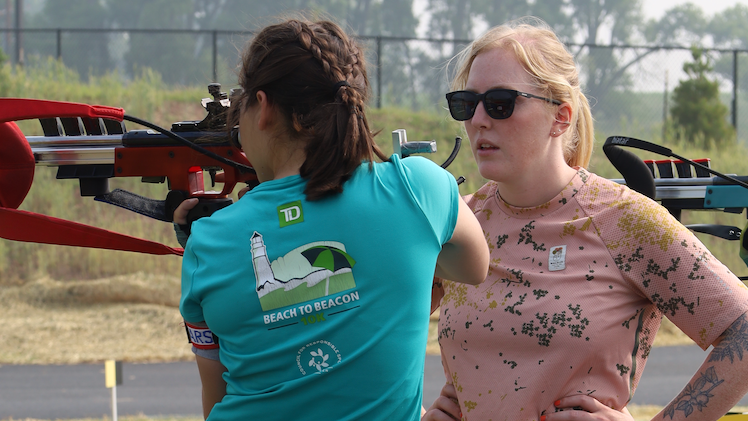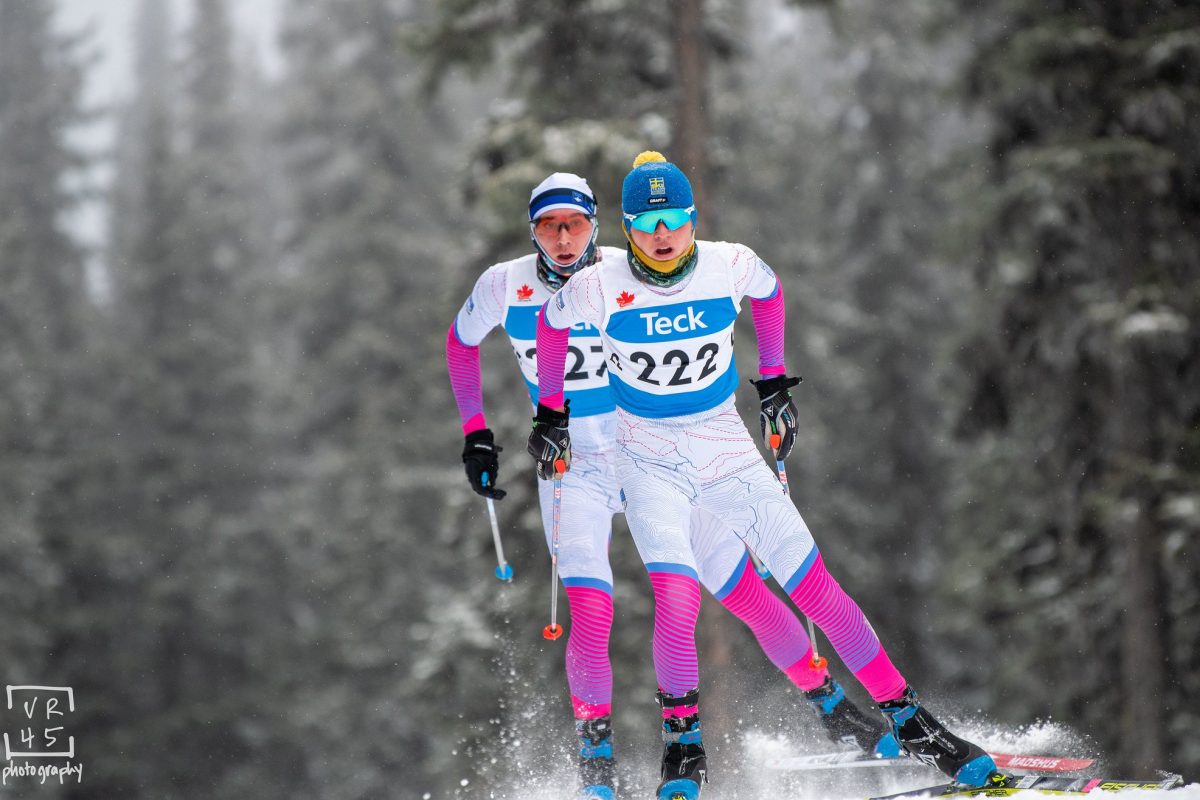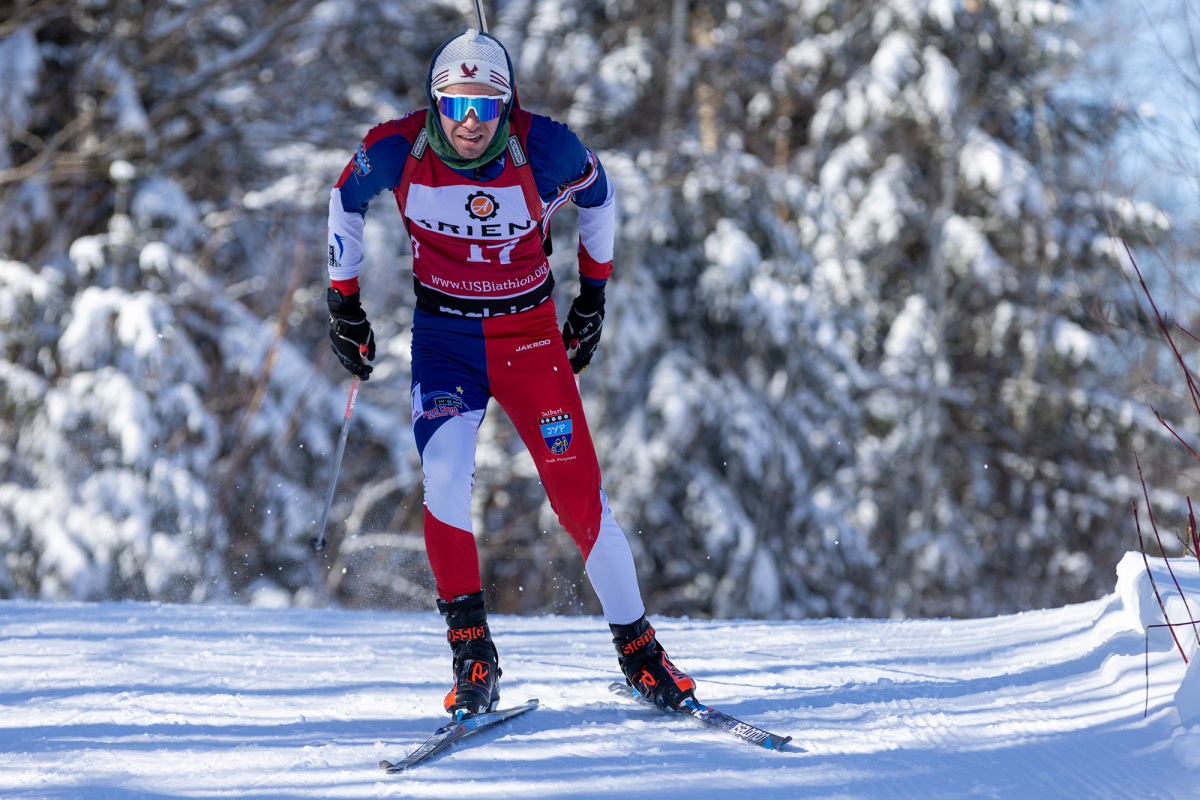
It’s a testament to Darya Domracheva’s speed that even with a 30-second lead with two kilometers to go, French relay anchor Marie Dorin Habert – the 11th-ranked biathlete on the World Cup and no slouch herself – was terrified of being caught.
“I was very worried!” Dorin exclaimed in a post-race press conference. “Darya is better than me at skiing.”
Luckily for France, Dorin is a better shot than the Belorussian star. After three legs of the women’s 4 x 6 k relay in Antholz-Anterselva on Saturday, the French had a narrow lead over the Germans. While things behind her reshuffled, Dorin cleaned first prone, then standing, and left the range the final time with a lead of 21 seconds over Russia’s Olga Vilukhina and 34 over Domracheva of Belarus, who had used one spare round in each stage.
Domracheva, however, isn’t one to let things rest. She churned her skis through the fresh snow that coated the trails. She turned in the fastest last loop by far, coming closer and closer to the French racer as the finish line drew closer.
By the time she entered the stadium, the gap was down to just under five seconds. Given how much ground she had already made up, it seemed somehow conceivable that Domracheva could still steal the win. In the end, however, she came up short, crossing the line just 2.5 seconds behind Dorin.
What doomed the Belorussian was her shooting: loading and using the spare rounds cost about ten seconds in each case.
“I am happy that they used one more spare round than we did, or it would have been much closer,” Dorin said of the teams’ overall performance, implying that she may have been able to beat Domracheva in a sprint, which seems unlikely.
“That extra shot was the difference – thank you Belarus!”
The podium finishes were significant for both teams, as France had not won a relay since 2007 and Belarus has not finished better than third in recent memory. The Russian women won the only other relay that has been contested this year, and today finished third.
The Canadian team of Megan Imrie, Zina Kocher, Melanie Schultz, and Rosanna Crawford finished 9th, tying the best women’s relay finish in the last five years.
While their 14 spare rounds – which are legal to use only in relays, with athletes carrying three extra bullets for each stage, which they must load by hand before taking an extra shot at missed targets – the Canadians had among the worst shooting of the day. But by another measure, they had among the best. Despite using so many spares, the women never actually visited the penalty loop, unlike several of the other teams.
“We escaped with no penalties again, but we know that we have so much more potential,” Crawford told FasterSkier in an e-mail. “With a few less spares we’ll be in the top six for sure.”
Crawford had the best shooting on the team, missing only a single shot. Scramble leg Imrie used five spares to tag off in tenth place, then Kocher used four. Kocher, however – turned in the second-fastest ski time on the second leg, and was able to move the team up one spot.
Schultz, who has little experience on the World Cup and like Crawford was pulled from the second-tier IBU Cup mainly for this relay, missed four shots and the team fell to eleventh before Crawford took over.
Given a 63rd-place finish in Thursday’s sprint, Crawford seemed unlikely to be the hero of the day. But in that race, she had been fighting a lingering cold, and by Saturday she was back to her normal self.
“Today was good skiing for me and we had amazing fast skis,” she said. “I love relays. They are short and sweet and I seem to be able to handle the pressure while shooting.”
The relay finish brings Canada’s Nations Cup ranking to 14th; they finished last season in 20th. If the team can remain in the top 15, they will gain a quota spot in next year’s World Cup competitions.

Further down the results sheet, the U.S. team finished 13th, which scramble leg Sara Studebaker said was disappointing.
“Of course we’re not satisfied with 13th place,” she wrote in an e-mail. “We all know we can be higher up and we made some mistakes today that kept us out of it. But we’re learning from them and looking forward to the World Championships relay.”
Studebaker herself turned in a good first leg, using a single spare round in each stage and tagging off in sixth. Despite struggling in individual races so far this year, she also turned in the seventh-fastest ski time among all leadoff racers.
“I was a little nervous because the first loop started out really fast, but I was able to hang and then shoot well,” she said. “I was pleased with my effort and my ability to still push through the last leg. It felt really great being able to tag off in such a good position.”
It was the third fast start Studebaker has contributed to U.S. relays this year, and the races seem to be among her best performances of the season.
“I think one thing I benefit from a lot in relays is the first lap,” Studebaker said to explain the pattern. “I typically struggle to put together a strong first lap in my individual races, so having a group to stick with makes it much easier for me.”

The second and third Americans had a tough time on the range, with Annelies Cook and Tracy Barnes both hitting the penalty loop – Cook twice after using all six spare rounds, and Barnes once after using three. Their three combined penalty loops were the most in the field, and the team dropped to 14th.
“I’m not really sure what was up with the shooting today,” Studebaker said. “Conditions weren’t that tough and not much different than the other days…but sometimes you just miss.”
Anchor leg Susan Dunklee, fresh off her first top-20 in Thursday’s sprint, used only two spares and was able to gain one spot when she outsprinted Slovakia’s Lubomira Kalinova.



